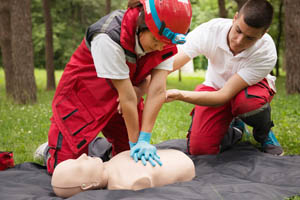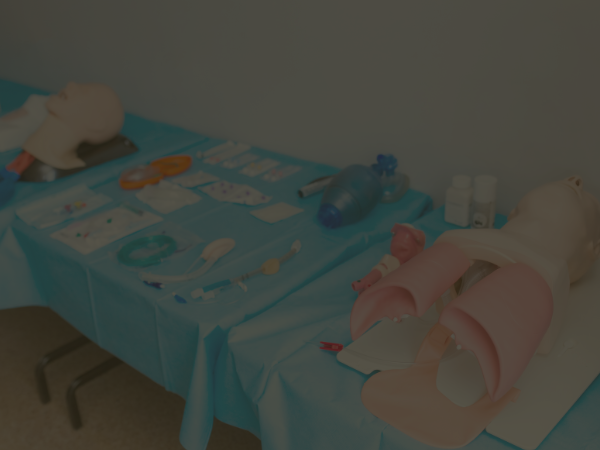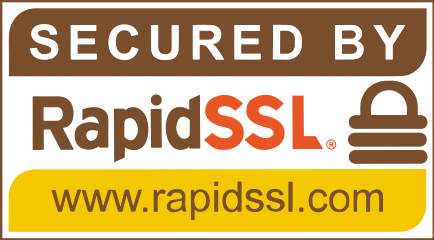When disaster strikes, the EMTs are often one of the first on the scene. You must be ready for anything and often improvise when something doesn’t go exactly like the EMT training manual. In these life or death situations, having some advanced healthcare training gives you the confidence and skills to tackle what the day brings and make it possible for people to go home to their families.
Let’s take a look at how getting additional EMT training supports your career and life goals and what kinds of training you might consider.
 Basic Life Support (BLS) training gives you some education and guidelines to preserve life, and to whatever extent possible, quality of life whether you’re a nurse, EMT, or an elementary school teacher who just wants to be prepared for the “what-if”. You’ll know what to do in common COVID-related emergencies and be able to offer first aid, CPR, and defibrillation.
Basic Life Support (BLS) training gives you some education and guidelines to preserve life, and to whatever extent possible, quality of life whether you’re a nurse, EMT, or an elementary school teacher who just wants to be prepared for the “what-if”. You’ll know what to do in common COVID-related emergencies and be able to offer first aid, CPR, and defibrillation.
Given the recentness of COVID, however, it has taken some time to get COVID algorithms updated across organizations.
Basic Life Support (BLS) training gives you some education and guidelines to preserve life, and to whatever extent possible, quality of life whether you’re a nurse, EMT, or an elementary school teacher who just wants to be prepared for the “what-if”. You’ll know what to do in common COVID-related emergencies and be able to offer first aid, CPR, and defibrillation.
Given the recentness of COVID, however, it has taken some time to get COVID algorithms updated across organizations.
EMT Training Certification Levels
EMT Certificates are known as post-secondary non-degree awards. That’s a somewhat roundabout way to say that you didn’t graduate high school and go to a traditional college where you might have to spend four years training to do something you may not even want to do once those four years are up. Instead, you got right out of high school and went into a specific skills training course so you could start pursuing your career dreams faster.
Alternatively, many people who did go to college after high school. But they decide that they’re ready for a change. And getting your EMT certification is a fast and affordable way to make that move. An entry-level EMT has incredible upward mobility and even the potential to train diagonally into a nursing, physician assistant, or physician role if they choose to obtain that added education.
EMT BASIC
As an EMT Basic or EMT-B, you’ll have the knowledge and skills to handle care for common emergencies you may face while on the job like:
- Assessing breathing difficulties
- Moving injured patients
- Supporting the neck
- CPR
- Basic First Aid
You’ll be expected to manage many life-threatening emergencies while keeping your own stress level under control. That’s not an easy task by a long shot, but those who become EMTs often do so because they love the fast-pace, physical activity, and problem-solving.
EMT INTERMEDIATE
The EMT-I has all of their basic EMT training but can do more advanced procedures such as intubating (inserting a breathing tube) and administering some life-saving drugs. As an EMT-B or EMT-I, it’s your job to not only keep a person alive until you can get to the hospital. But you’ll also want to do what you can to preserve brain and body function so that the patient has a quality life after the accident. You’re more likely to have these advanced skills after completing an EMT-I program… or the other advanced healthcare training we’ll explore in just a moment.
PARAMEDIC
A paramedic (EMT-Paramedic) must complete two years of Paramedic EMT training on advanced skills like pharmacology, greater understanding of heart and lung function, and anatomy. Like a doctor, a paramedic will work as an intern under direct supervision before they are permitted to perform more advanced procedures alone in the field.
With all of this training and practice, why would you want to explore advanced healthcare training certificates as well? Let’s take a look!
Benefits of Getting Added Healthcare Certifications
 As an EMT you’ll complete EMT training that includes both classroom work and lab training, which is intended to represent real-world situations. Some of your lab training may be in the field. While the EMT training is comprehensive, there are several reasons to take it upon yourself to supplement your training with advanced healthcare training courses.
As an EMT you’ll complete EMT training that includes both classroom work and lab training, which is intended to represent real-world situations. Some of your lab training may be in the field. While the EMT training is comprehensive, there are several reasons to take it upon yourself to supplement your training with advanced healthcare training courses.
1. Continuing Medical Education (CME) Credits for Licensure
The first reason is obvious. To keep your license after spending all of this time going through EMT training, you’ll be required to take continuing education courses to both advance your understanding and stay up-to-date of the latest in life-saving EMT relevant procedures. Additionally, your employer may require certain courses as part of your continued employment or when taking on a new role. Even if your EMT license is good for some time, it’s worth your while to go ahead and complete your CME credits early because you get to benefit from that knowledge in the field.
2. Greater Confidence in the Field = Less Stress
We don’t have to tell you that being an EMT is a stressful job. In fact, to become an EMT, you must take EMT training courses on how to effectively manage your stress levels so you can do your job. As you may have learned in EMT training, confidence is strongly linked to the ability to manage stress, as demonstrated in a well-conducted study on ncbi.nlm.nih.gov. But misplaced confidence causes mistakes.
Taking advanced courses can boost confidence and skills at the same time so that you better manage stress and perform better even when doing the basic procedures.
3. A Foot in the Door with More Desirable Employers
Do you dream of working on a cruise ship? Okay, maybe not right now with COVID-19 so widespread, but some time in the future when we have a vaccine. Or maybe you’d like to work for an entertainment venue, resort, or top research hospital.
When you obtain additional certifications beyond those required to obtain licensure, you show a potential employer that you care about being a phenomenal EMT and you care about preserving life. When an employer has to choose between you with your advanced certificates and another, if all else is equal, those certificates give the more selective employers a compelling reason to choose you.
4. Potential to Secure Higher Pay Upon Entry
In some cases, this may also mean greater room to negotiate higher starting pay. Getting added certificates can’t guarantee you higher pay. But they certainly don’t hurt. You will better understand your job and you’re showing your employer you’re dedicated.
5. Greater Opportunity for Advancement
Once again, getting a certificate is not an automatic promotion. But if your job performance and experience are in order, having added certifications can tip the scales when employers must choose who will take on a new role.
6. Respect Among Your Peers
As you likely know, in a practical professional setting like EMT, you’re less likely to earn respect simply because you know how to do some things or where you went to school. You earn respect when your peers see you performing tasks, solving problems, saving lives, and staying calm when they may not have known what to do in that situation. Getting advanced EMT training and healthcare certifications can give you the education and skills you need to impress both peers and bosses.
7. More Prepared for Advancement Training
Let’s say that right now you’re an EMT-B and you’re working toward becoming a Paramedic. The idea of learning those advanced concepts and passing those exams may seem like quite a mountain to climb right now. But the knowledge and skills you learn in advanced healthcare certification courses will make studying and passing paramedic exams much easier because there’s a lot of overlap in training that both reinforces what you’ve learned and makes it easier to retain and use.
Five Healthcare Certificates Every EMT Should Take
When you train with us, each course is Joint Commission Compliant, 100% online, internationally accepted 98% of the time, and where relevant they adhere to the latest ILCOR Standards and Guidelines.
BLS Certification / Recertification
Why every EMT should take it
Get Up to 4 AMA Category 1 Credits™.
This is a very basic course that you can probably breeze through as a practicing EMT. But it’s important to stay current on basic life support best practices. And since it should count toward your continuing medical education credits, it’s a very easy certificate or recert for an EMT to obtain to keep their license in good standing.
What you’ll learn
In a BLS course you explore things like:
- One and two-person techniques for adults and children
- Chain of Survival, which you’re likely familiar with
- Step-by-step how to properly use a defibrillator
- Proper ventilation and mask-wearing for adults and children
- Age-appropriate choking relief
CPR, AED & First Aid Certification / Recertification
Why every EMT should take it
Up to 6 Category 2 CME Credits™ available.
This is CPR, Automated External Defibrillator, and First Aid. Again as a practicing EMT, you may find some overlap in this course with your formal EMT training. But best practices are constantly evolving. And you will learn things you didn’t know that could make the difference in the field. It should also be a relatively easy continuing medical education credit(s) to obtain for your license.
What you’ll learn:
Expand on your knowledge of best practices with things like:
- First aid
- Spotting a responding to various medical problems
- Responding to traumatic injuries
- Responding to environmental exposures
PALS Certification / Recertification
Why every EMT should take it
Up to 8 AMA Category 1 Credits™ available.
PALS is Pediatric Advanced Life Support. You never know when that life you need to save is going to be a child. And administering lifesaving and quality of life-preserving treatment to an infant or grade school student is very different from doing so on an older teen or adult. You will get some pediatric life support training in BLS. But this course expands on how to preserve life and quality of life in an emergency.
What you’ll learn
In PALS, you’ll take the basics you learned in BLS of First Aid and expand on it. You’ll learn:
- About a pediatric resuscitation team
- Advanced pediatric life support techniques
- Tools for advanced pediatric life support
You’ll also walk through several scenarios to see how everything comes together and build confidence in your own abilities to apply what you’re learning.
ACLS Certification / Recertification
Why every EMT should take it:
Up to 8 AMA Category 1 Credits™ available.
Advanced Cardiac Life Support (ACLS) is where you’ll get a lot of the training that you may not yet have received as an EMT. But everything you learn in ACLS course has the potential to transform your ability to effectively administer life-saving care.
What you’ll learn
You’ll become familiar with:
Bloodborne Pathogens Certification / Recertification
Why every EMT should take it
You can get up to 3 Category 2 CME Credits and it adheres to www.osha.gov Bloodborne Pathogens Standard 29 CFR 1910.1030.
As an EMT, you never know when a patient with whom you must get up-close-and-personal has a bloodborne pathogen. And an EMT’s code of honor dictates that you treat someone with a known bloodborne pathogen with the same medical standards. There are many steps you can take to stay safer in both the unknown and known situations. By taking this course, you’ll feel more prepared to balance your own life and health with that of your patient.
What you’ll learn
Explore procedures, tools, and protocols to safely handle, manage, and clean bloodborne pathogens.
Certification Bundles Save Money
Certification bundles available through our website help you get all of your required and added training online for the least cost to you or your employer. We have two bundle options, so you can find the one that makes sense for you.
Get BLS free when you buy ACLS and PALS together as a one-time cert. Or purchase the three for a lifetime of recerts for one low price, so when it’s time to recert, you have no added cost.
Another great way to save is by purchasing a For Life Bundle for one course. Pay once. Certify forever. We also offer team discounts so the more people in your unit who certify through us, the more your team saves.
It’s time to cert and recert your way to better understanding, greater job confidence, and potential for career advancement. And it’s all online so you can take courses in your spare time from any device where you have a steady Internet. Get started and see what you can learn.







I’m trying to take the EMT course I just want to see if I could pass the course